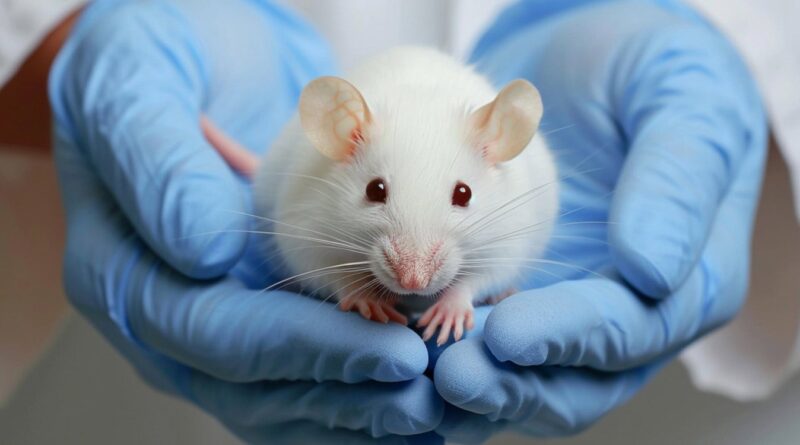Study finds grandparent exercise boosts offspring recognition in mice
New research published in Journal of Neuroscience shows that the cognitive benefits of physical activity can be passed from grandparents to grandchildren, suggesting that exercise-induced cognitive improvements may continue across many generations.
Exercise has been shown to improve neuroplasticity and improve cognitive abilities in a variety of species, including humans. Previous research has examined the transmission of these benefits across generations, particularly from parents to their children. However, the extent to which these effects can be transmitted beyond the first generation (transgenerational inheritance) is still untested.
Elisa Cintado and colleagues filled this gap by investigating whether exercise-induced cognitive improvements could be passed from the paternal generation to the second generation of male mice.
The researchers used three generations of mice—F0 (grandfather), F1 (fathers), and F2 (grandsons). The F0 generation consisted of male C57BL/6J mice that were assigned to an exercise group or a sedentary control group. The exercise group underwent a six-week moderate exercise regimen, with exercises consisting of running at 1,200 cm/min for 40 minutes a day, five days a week .
On the other hand, a group of sedentary people are sitting in their closed houses without exercising. At the end of the exercise protocol, sperm from the F0 males were collected and used to produce the F1 generation by in vitro fertilization (IVF), to ensure that there are no effects of the exercise on the pregnant women.
The F1 generation consisted of sedentary males derived from either exercising (F1RUN) or sedentary (F1SED) F0 sires. These F1 males were bred again by IVF methods to produce the F2 generation, again without exposure to exercise, thus maintaining the habitability across generations. A total of 23 male F2 mice were used in the study, consisting of two groups: those from the exercised grandfathers (F2RUN, n = 8) and those from the sedentary grandfathers (F2SED, n = 15).
The cognitive performance of F2 mice was assessed using a battery of behavioral tests designed to assess various aspects of memory and learning. These included the Novel Object Recognition (NOR) test to measure non-spatial memory, the Object Location (OL) test to assess spatial memory, and the Contextual Fear Conditioning (CFC) test to assess memory ability. and discrimination.
In addition, hippocampal cells were collected from F2 mice for histological analysis and small RNA sequencing to identify differentially expressed microRNAs, which may provide information on molecular mechanisms. ‘hule that supports any observed difference.
The results showed that the F2RUN mice, whose grandfathers exercised, showed significantly better cognitive performance than the F2SED mice in most tests. In the NOR test, F2RUN mice showed improved short-term memory compared to F2SED mice. Similarly, in the OL test, F2RUN mice outperformed F2SED mice in detecting subtle changes in object location. These findings suggest that the cognitive benefits of exercise observed in the F0 generation are transferred to the F2 generation, even in the absence of any exercise in the intervening generations.
Interestingly, although cognitive improvement was evident, there were no significant differences between F2RUN and F2SED mice in measures of adult hippocampal neurogenesis, such as the number of nerve cells or immature neurons. This contrasts with previous studies in the F1 generation, where increased neurogenesis was observed in the offspring of trained mice.
However, microRNA analysis revealed 35 differentially expressed microRNAs in the hippocampus of F2RUN mice, with two distinct microRNAs (miRNA-144 and miRNA-298) which show a strong negative correlation with cognitive performance. These results suggest that epigenetic mechanisms, which may be mediated by certain microRNAs, may play a role in the transgenerational transmission of exercise-induced cognitive benefits.
A notable limitation of this study is that it focused primarily on male mice and did not examine potential sex differences in the transgenerational transmission of exercise-induced cognitive benefits. Future research should include female children to determine whether similar results are observed across genders.
The study, “Transgenerational transmission of Grandfathers-to-Grandsons of Exercise Positive Effects on Cognitive Performance,” was written by Elisa Cintado, Patricia Tezanos, Manuela De las Casas, Pablo Muela, Kerry R. McGreevy, Ángela Fontán-Lostán-Lostzanon, Eva Sacrine Horcajada, Jaime Pignatelli, María L. de Ceballos, María Jesús del Hierro, Julia Fernández-Punzano, Lluís Montoliu, and José Luis Trejo.
#Study #finds #grandparent #exercise #boosts #offspring #recognition #mice
